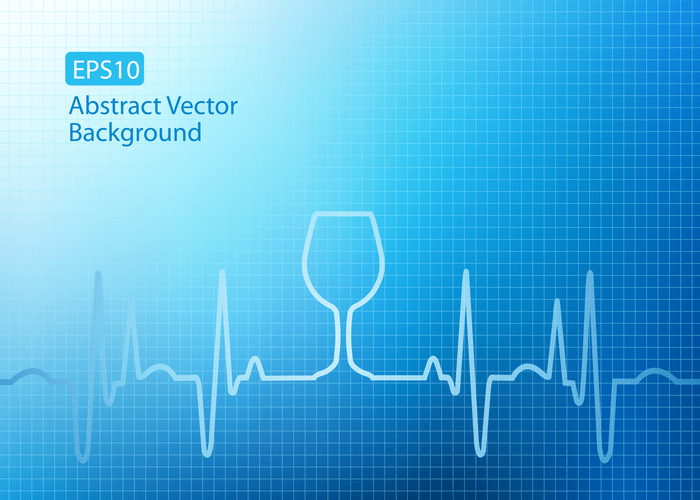How To Taper Off Alcohol: Key Strategies and Tips
This medication allows patients to safely detox without exposing them to the intense experience of opioid withdrawal. Medications are administered in the tapering process for barbiturates. Also, barbiturates are gradually decreased from the body until the person is drug-free.
Alternative Methods for Quitting Alcohol
For example, if you have been drinking an average of 12 drinks per day then your taper schedule can be 10 beers the first day, 8 the second, 6 the third, 4 the fourth, 2 the fifth and 0 the sixth day. Likewise if your average consumption https://centraltribune.com/top-5-advantages-of-staying-in-a-sober-living-house/ is 6 standard drinks per day you can set a taper schedule of 4, 2, 0. The Recovery Village Atlanta offers comprehensive addiction treatment for drug and alcohol addictions and co-occurring mental health conditions.
Challenges of Tapering Off Alcohol
This process can help your body break its dependency on alcohol with minimal side effects. It is also very important when tapering off to fight dehydration and to replenish lost vitamins. If you go through a medical detox the people they may rehydrate you with an IV and may also give you vitamin shots. If you are doing a self detox be sure to drink lots and lots of fluids and to take vitamin pills.
- If you only drink two to three drinks per week, you can easily quit cold turkey without experiencing major withdrawal symptoms.
- Tapering off alcohol can help minimize the severity of withdrawal symptoms and provide a more manageable transition to sobriety.
- Each method has pros and cons, but regardless of which one you choose, you must have the knowledge and resources to make a quit attempt successful.
- While pursuing my masters, I also received my BCAT certification which allows me to work with clients with Autism.
Supportive Measures for Alcohol Withdrawal
Quitting alcohol can be extremely hard, especially without medical support. Further, mental health disorders like anxiety and depression are extremely common in those who struggle with drinking, and these disorders can make it even harder to stay sober. This method is safer than abruptly stopping alcohol consumption, especially when switching from hard liquor to beer. Gradually reducing alcohol consumption can be achieved through a substitution taper. This can involve switching to a different alcoholic beverage or replacing alcohol with a prescription drug, but the latter should only be done under the guidance of a medical professional.
How to safely taper off your alcohol consumption
This method can lessen withdrawal symptoms, allowing your body to adjust to decreased alcohol levels slowly. It does, however, result in any withdrawal symptoms that do occur being prolonged over the entire period of the taper. Still, it has a decreased level of success when compared to the alternative and requires discipline that can be difficult for those with an addiction. This is a Sober House highly personal decision, which can be made through self-reflection, and with the support of a medical professional and your peers. If it’s safe for you to quit cold turkey, you may find that cutting alcohol out entirely from the start helps you clearly uphold your boundaries. Or, you may find that quitting all at once is too drastic and decide to start by practicing harm reduction.
What Happens to the Body When You Stop Drinking?
In 2017, James had the opportunity to combine his business experience and passion for recovery to start The Freedom Center. If you’re having trouble quitting alcohol, many resources are available to help. You can talk to your doctor about medications that may help ease the process.

What Does It Mean to Stop Drinking Cold Turkey?
- Lazare has accumulated over eight enriching years in the provision of holistic care to a wide variety of clients, with psychiatric conditions.
- In that role, James audited a national trade association with over 1,300 member companies that sell health insurance coverage to more than 200 million Americans.
- Nonetheless, quitting cold turkey might be the only way for people who don’t have an alcohol use disorder (AUD).
- Mary builds strong client relationships, ensuring satisfaction with each interaction.
Implementing coping strategies to handle triggers and stressors is vital for maintaining sobriety. These strategies may include developing healthy coping mechanisms, engaging in therapy or counseling, practicing mindfulness techniques, and finding alternative activities to replace drinking habits. Deciding to quit drinking and following through isn’t just about willpower. Many other factors go into play with these difficult and trying scenarios. Tolerance, dependence, social habits, setting, the biology of the individual and more must all be considered.
- These symptoms can last for several days or weeks depending on how much alcohol you drink regularly and the length of time you have been drinking excessively.
- Having faced addiction in his own life, and having worked through recovery, James truly understands what it takes to get sober and stay sober.
- Some alcohol withdrawal symptoms can be so severe that they can lead to death.
- Alcohol withdrawal can begin within hours of ending a drinking session.
What You Get in Professional Treatment
- Tapering gradually lowers the amount of alcohol that you use over time.
- There are many factors that can affect how long weaning off alcohol will take.
- With NRT, people use products, such as nicotine gums, patches, and sprays, that provide nicotine to prevent withdrawal symptoms.
- There are several health benefits to stopping smoking, drinking alcohol, and taking drugs.
Quitting alcohol “cold turkey” refers to abruptly stopping alcohol consumption without gradually reducing the amount or seeking professional help. While this approach may seem decisive and straightforward, it carries significant risks. Physical alcohol dependence is marked by tolerance to its effects and the experience of withdrawal symptoms when alcohol use is abruptly discontinued. On the other hand, psychological dependence refers to the reliance on alcohol to cope with emotional and mental challenges.